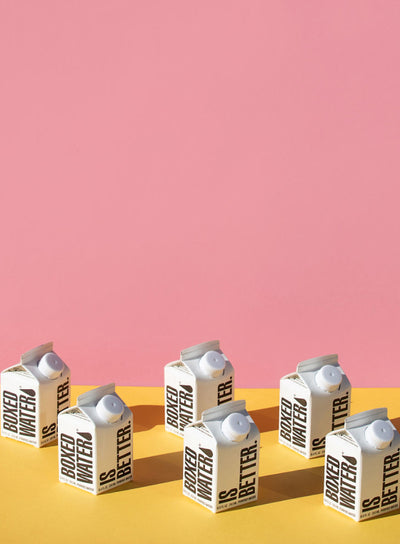When you think about making sustainable choices, plastic straws and plastic bags usually get the most attention. But there’s other products that you use daily that can also make a big impact on your personal carbon footprint.
Top beauty brands have made significant strides to push sustainability in both their products and manufacturing/ ingredient sourcing. In 2018, L’Oreal announced the move to 100% eco-friendly packaging by 2025, and others, like Beautycounter, have made strides in more planet-focused packaging and ingredients. The next time you’re at the store or looking for new skincare and makeup, keep your eye out for these sustainable beauty brands.
Beautycounter
Beautycounter and its consultants sell beauty products that are free of 1,500 “questionable chemicals” and implemented an extensive ingredient selection process to create safer products. In addition to ingredients, they’ve also made strides in more sustainable packaging, including eliminating plastic spatulas, lid inserts, and secondary packaging,as well as eliminating an estimated annual 800,000 additional plastic parts.
They’ve also started to explore other packaging materials, like glass, which they say reduces their Countertime line’s greenhouse gas footprint by an estimated 38%.
Their CEO Gregg Renfrew is also known for being a vocal advocate for beauty industry reform. December 2019, Beautycounter announced that Renfrew would be an expert witness in a congressional hearing on cosmetic reform to advocate for more explicit ingredient regulations for personal-care and beauty products.
Milk Makeup
Milk Makeup has also embraced the clean beauty movement. Their products don’t include any parabens, sulfates, SLS, SLES, formaldehyde, mineral oil, or talc. They’re also known for their beeswax-free Kush Mascara, featuring cannabis oil.
In 2018, they made the move to go vegan, which meant eliminating all animal-derived ingredients, like honey, collagen, lanolin and gelatin.
Public Goods
Public Goods offers sustainable, minimalist alternatives to your daily personal care and grocery products. Their personal care products like body wash, conditioner, dental floss, lotion and moisturizer. And, instead of plastic, petroleum-based packaging, they use a sugarcane-based bioplastic and also offer refills so you can reuse your bottles and save money. You’ll be happy to know that many of their products are zero waste, like their bar soap, dental floss, sea sponge, shampoo bar and wool dryer balls.
Lush
Did you know that 35% of Lush’s products are unpackaged (known as their Naked line), which includes bath bombs, bubble bars, henna hair dyes and massage bars? Since 2005, they’ve sold 41 million shampoo bars, which they claim has saved 3,417 tons of plastic from ending up in our landfills and oceans. For non-Naked products, like liquid body washes, they’re packaged in 100% post-consumer recycled plastic that’s fully recyclable. They’ve been experimenting with using ocean plastics in their packaging as well.
LOLI
LOLI uses recycled, biodegradable or certified compostable materials to package their beauty products – and their glass jars are great for reusing at home or can be recycled. That’s not all – their labels are made from recycled paper and are removable and compostable with water- or soy-based inks. Inside the packaging, their products are made with ingredients that are 100% natural without added parabens, preservatives, sulfates or phthalates – and they try to source fair-trade and organic whenever possible.

